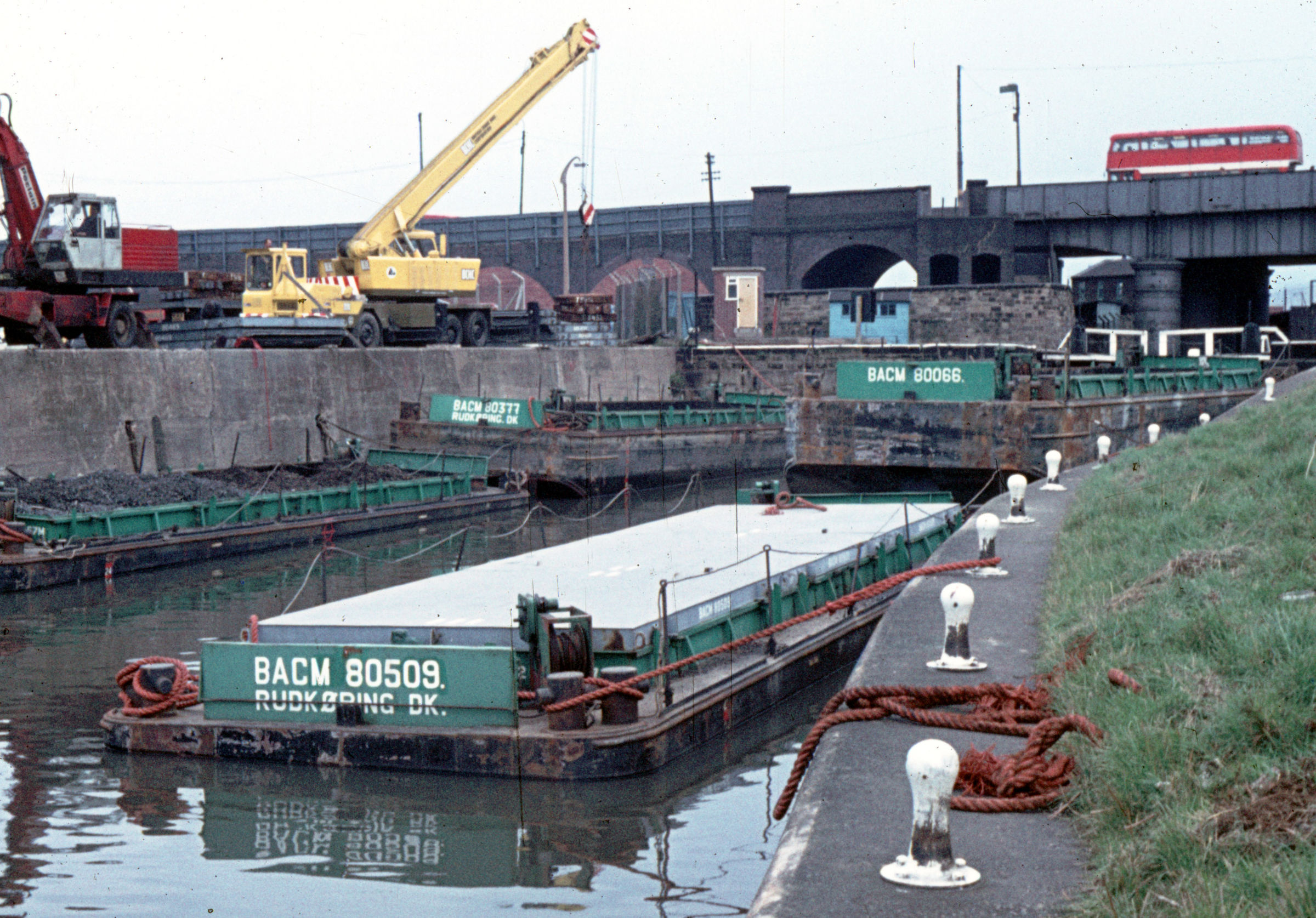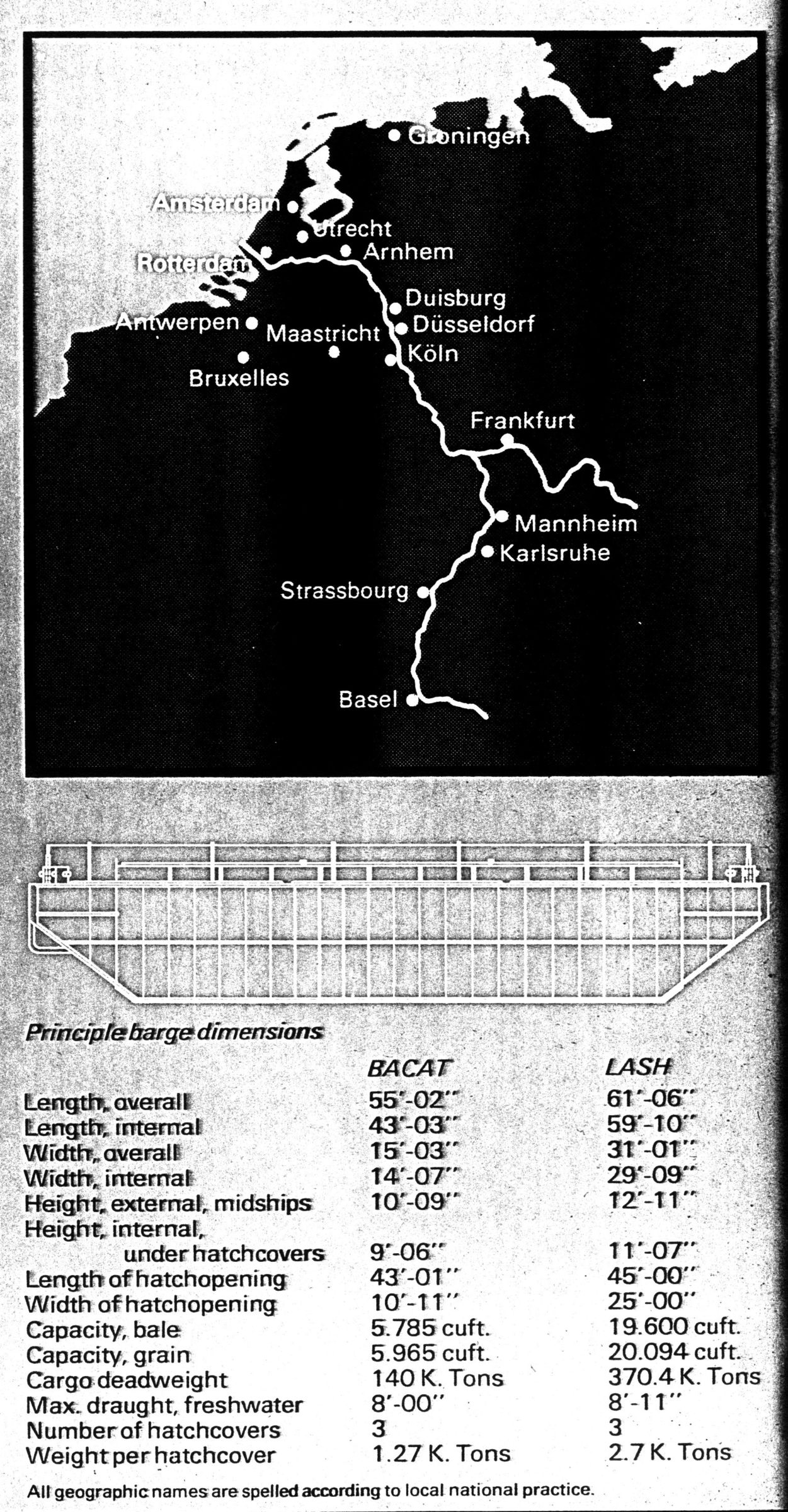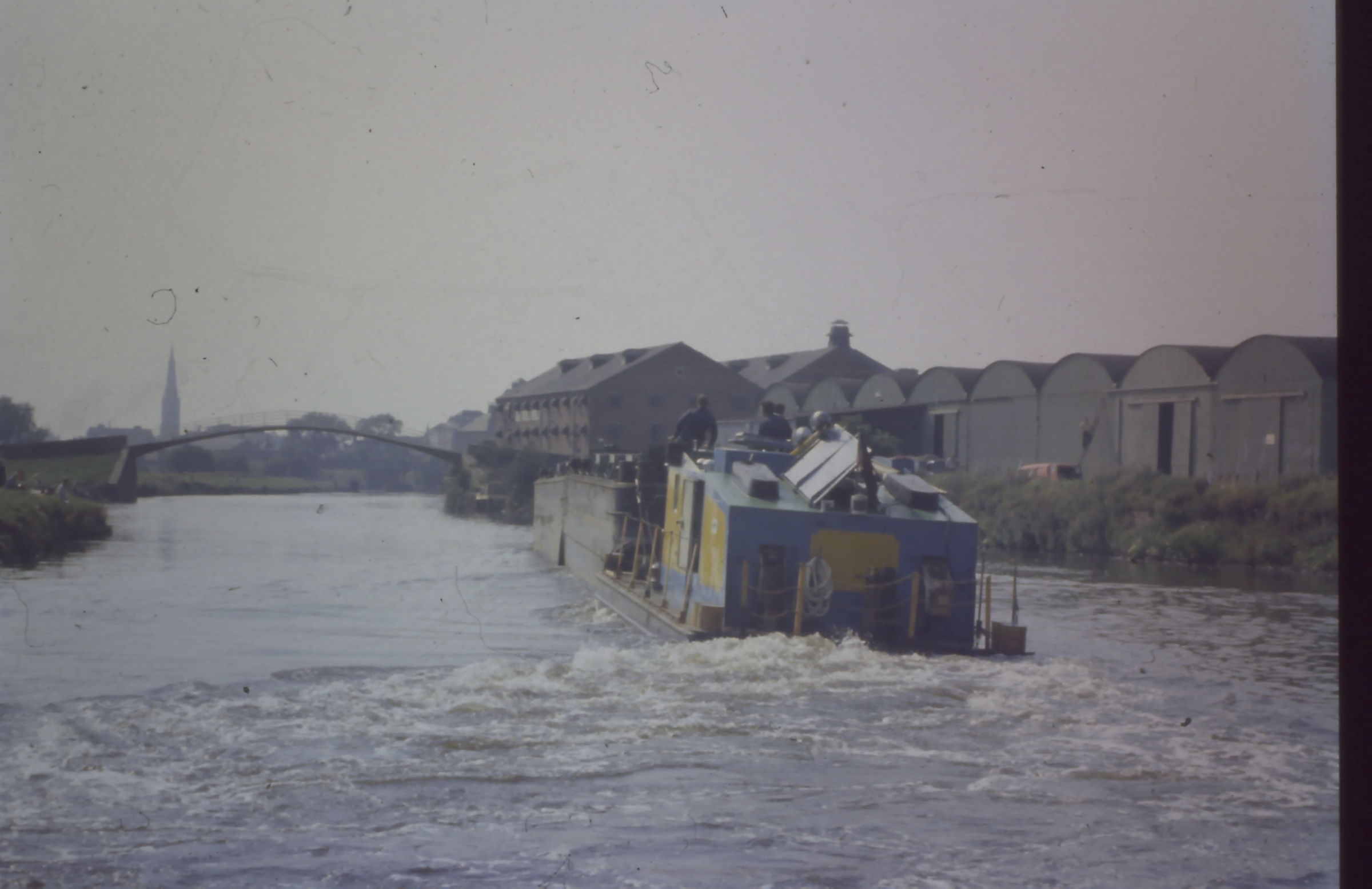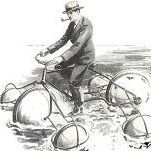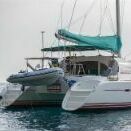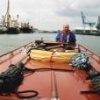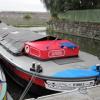Leaderboard
Popular Content
Showing content with the highest reputation on 24/08/19 in all areas
-
Well, let us pick that apart. Firstly, I reject the premise that all volunteers are "trying to help". It is very clear that some are seeking a position of power over others, and some just want to play with the locks. Some, I accept are motivated by a belief that what they do helps boaters. Whether they have ever considered whether the said boater desires help is neither here nor there. But, if we have somebody who desires to help, but who lacks the ability to actually do so, must we accept this sub-standard help with gratitude, because it is from a volunteer? I say that we have no such obligation. If we want to work locks ourselves then so be it. What will be next? will WH Smith bring in volunteers to do the Times Crossword to save the readers the trouble? I had thought that I might be relating a tale of a good volunteer, because whilst out this week we did encounter one. We were going down Bosley, and two volunteers were assisting a boat up the full flight. The lockie I spoke to was chatty and pleasant, and explained that the boaters were in their 70s and had called to office to ask if there would be volunteers, so they were there specifically for that boat. The lockie assisted with gates, and left our paddles alone. He was exactly what should happen. Coming up Bosley was a different story! My 12 year-old grandson was my lock crew for the day, when we encountered the volunteers. At the first manned lock the volunteer spoke to neither of us, didn't even look at me, and wound a paddle up. I grimaced and said nothing. At the second manned lock the volunteer spoke to Nick, and instructed him not to pause when raising the paddle, but to whip it straight up. Nick politely said that I had asked him to do it that way, and he would wait for my signal to raise the paddle fully. The volunteer didn't look at me. I grimaced and said nothing. At the third manned lock, the volunteer told Nick that he was doing this lock, and sent Nick on to the next lock. I called Nick back to work the lock. The volunteer didn't look at me before winding a paddle. As the boat got to the top I stepped off to speak to the lockie, and was treated to "stay on your boat". I went over to him and told him that it was not appropriate for him to be issuing instructions to a 12 year old to go and work a lock away from my supervision. His response; "he'll be fine". Yes I know he will be fine. I know his capabilities. You have no idea, and shouldn't be interfering. At the fourth manned lock, the volunteer didn't look at me (bit of a theme here), wound the paddle up and stepped away leaving the windlass in place. I called to him to remove it. He shouted back that it was fine, the catch was on. Now, I will put up with some bits and pieces of not doing it exactly as I want, but I will not tolerate unsafe working when we are in the lock, so leant on the horn and shouted (very loudly, I have a big gob) "DROP THE PADDLES NOW!". For the first time all day a volunteer followed his training and put the paddles down. I then told him to step away from the lock and take no further part in the operation. He protested that he was assigned to work this lock, and I reminded him that he was assigned to offer assistance to those that want it. I neither wanted nor needed his assistance, and as he had shown himself incapable of working a lock safely, he would have to stand aside. Then on to the final lock (the top lock). The volunteer didn't look at me, and would a paddle, but other than that I came up without incident. As no boats were approaching downhill, my stepdaughter was ascending the lock next and the lock/water mooring was occupied, I waited back in the upper jaws for her to ascend. She came into the lock, came to a halt, and turned round to check that the bottom paddles were down. Whilst she was still facing backwards, he started to wind a paddle... "STOP!" Who on earth thinks it is OK to start winding a paddle when the steerer is looking the other way? I'm afraid that either they are not being trained properly, or they are not being supervised properly.5 points
-
4 points
-
This post cannot be displayed because it is in a forum which requires at least 10 posts to view.
-
Will probably (drastically) reduce the adhesion, which would not be good. A much better approach would be to apply several coats, with the recommended drying time between, up to the recommended thickness.3 points
-
Well, it was an interesting read. It goes some way to address the issue that affects all electric vehicles, namely that those planning it know that they will charge up in the office car park and outside the garage of their gravelled drive, without thinking that for 90% of people that isn't an option. The other thing a bout all this electric malarkey is that it isn't saving the environment. It is destroying it in new ways, but not in this country, so that is OK. Ever looked at a Lithium Mine? Huge areas of once fertile land laid waste, Not sure how that helps the environment. And there just isn't enough of the stuff to meet the demand if we go all-electric. The reason that internal combustion engines are so ubiquitous is all to do with the viability of your energy source. A liquid energy source that can be onloaded in minutes and gives enough energy for weeks, as opposed to an energy source that takes hours to on-board, and lasts a day. The tractor idea is also impractical for another reason. Who is going to install all that infrastructure for a system that might take 20 years to be in common use. Existing boats won't work with it (they require the prop-wash to steer)3 points
-
Like you, my approach is to pick this apart systematically, thinking of the way my former Occ Psych colleagues would approach it. First off, selection. What screening takes place to identify the little hitlers? People volunteer for lots of reasons, sometimes on the advice of their counsellors, and whilst that’s not automatically a bad thing, it may point to a need for closer supervision. Secondly, training. We’ve been given assurances about the content of training, but what about trainer training and supervision of the training process? I’ve been a Scout leader trainer in my time and I’m well aware of the impact of the trainer’s attitudes and approach on the kind of issues we’ve been discussing even with the most closely specified and carefully designed programme. Finally, ongoing supervision, refresher training and remedial training. I suspect that this is the really weak part of the system. We’ve heard of some cases where complaints have resulted in an undertaking to give advice or further training to a volunteer, but it shouldn’t be left to this sort of reactive response. There should be a programme of regular review of the vollies, especially when they are working in a team and there’s scope for echo chambers to form and encourage undesirable working practices, as seems to have happened in the Bosley case. Managing volunteers is very different to managing employed staff. There are far fewer sanctions available to the manager and it takes a very high standard of person to person skills to avoid some very difficult situations at times.3 points
-
This post cannot be displayed because it is in a forum which requires at least 10 posts to view.
-
2 points
-
2 points
-
The BT either side of the circle might have been the guide marker to make a hole for a''Bow thruster'', Only they realized at the the last minute that it was miles too high up.2 points
-
@Peter X likes crewing for random boaters ... But I'm with @tree monkey on this one ...2 points
-
Surely they will have more problems returning to their old lives? ? As long as you don't let any escape and tell others what is really happening, there will always be plenty of people looking for a "free" holiday. ?2 points
-
If anyone is looking at Hyades and needs somewhere to moor her we would happily offer a reduced mooring for her at Langley Mill Boatyard as we like to see ourselves as a butty haven. Too many are being chopped these days and I think it is important to preserve them as much as possible.2 points
-
This post cannot be displayed because it is in a forum which requires at least 10 posts to view.
-
2 points
-
2 points
-
@jimxtc I am so sad to hear that you feel this forum has been such a negative experience for you, though I am not surprised. You have been a breath of fresh air and your passion and determination have been both wonderful and inspirational. You don't post often but I always have enjoy when you do, because you do think out side the box. If we are never to hear from you again then I would just like to say that I am so glad that you got your boat and that you have found someone to pilot it with you, I wish you all the best with your boating and what ever other projects I'm quite sure you will undertake. Good luck and good boating. Tumsh1 point
-
This post cannot be displayed because it is in a forum which requires at least 10 posts to view.
-
This post cannot be displayed because it is in a forum which requires at least 10 posts to view.
-
1 point
-
Every type of blacking that is any good has health warnings that it is harmful to aquatic life. If you dont pour it into the canal it is safe. If you let it dry on your boat, and then put it back on the water, it is safe.1 point
-
This post cannot be displayed because it is in a forum which requires at least 10 posts to view.
-
If it is so good, why has no other car manufacturer used the technology in a high volume car so far? Why is every other manufacturer currently developing and selling battery electric cars over fuel cell ones. The half dozen or so fuel cell models produced by various companies over the last ten, or fifteen years are either out of production, or are sold only in certain countries. Starting a new manufacturing company off from nothing is not easy and many fail, even if their product is good. If Riversimple's technology is so amazing, why have they not licensed it to other manufacturers? This would be a good way to bring in cash with minimal outlay. I had a look at their web site and it is big on flashy graphics and short on details.1 point
-
This post cannot be displayed because it is in a forum which requires at least 10 posts to view.
-
So the people behind Riversimple are wrong, are they? I'd rather believe them than you, as a mere amateur, especially when we've had the arguments elsewhere here about the difficulties of many people charging at home, which you completely fail to register.1 point
-
You comments about cars seem to go against all that the experts at Riversimple say. And their car works.1 point
-
How many coats are you planning to put on ? The norm is 3 coats over 7 days. 1st day to wash and scrub the hull 2nd day to put on 1st coat 3rd day touch up in 'corners' weed hatch around swims etc 4th day 2nd coat 5th day repeat day 3 6th Day repeat day 4 7th day - relaunch It depends on conditions but ideally you should allow 24+ hours between coats.1 point
-
When they were working who was responsible for Plimsoll/load lines? I have a feeling it maywell have been the Board of Trade.1 point
-
My fading understanding is that the mark you refer to is the mark of the 'classification society' that inspects and certifies the vessel for use. The round mark with L and R either side would be LLoyds Register, B an V either side Bureau Veritas etc.. Could be a Dutch or Scandnavian society1 point
-
Short answer - no. There is a channel, maybe 2" x 2", which extends all the way around the hole in the back deck. Two hinged plates (??5mm thick and 2' x 2' square) sit on that channel and form maybe 50% of the cruiser deck surface area - mine is more or less square. There is a small gap between the hinged plate and the solid rear deck. Any water that goes down the gap ends up in the channel. Since the boat sits down by the stern, that water goes to the back where it finds a hole connected to a tooob which runs overboard at a steep slope (no backflow). My perception is that many boaters seem to accept that you get water in the enginole - from rain, stern gland or whatever. Mine is DRY. Had maybe two or three 'incidents' in seven years. Lots of autumn leaves and wind can persuade leaves down the hatch/deck gap and block the outflow - heavy rain will then overflow the channel. This season I backed into a really leaky lock gate and shipped about an inch of water, which overwhelmed the channel, into a small area of the bilge (which is divided up by cross members, engine bearers etc. A bucket and a half mopped out. So rain, melting snow/slush, lock gates etc are a worry but very, very few problems have materialised. My cruiser deck is flat with a lip at the front protecting the rear steps. What happens on boats where the rear steps start on the rear deck and are expose even when the rear door/hatch are closed?1 point
-
This post cannot be displayed because it is in a forum which requires at least 10 posts to view.
-
This post cannot be displayed because it is in a forum which requires at least 10 posts to view.
-
The key word is developmental. The non internal combustion BMW's you can go out and buy right now are battery electric. A good article here on the reasons for this and why fuel cells currently make more sense for lorries and trains than they do for cars and how this could and probably will change in the future. For now battery electric is the more mature and cheaper technology for cars and probably narrowboating. A hydrogen fuel cell powered narrowboat has been built at Birmingham Uni. I see it passing the Uni by train regularly. It never seems to move, so I guess that the project is over. Jen1 point
-
I thought I would see it there was a published job description for volunteer lock keeper. There is not but there is a “Volenteer Lock keeper information sheet”, which has some elements of a job description included. It is worth a look here https://canalrivertrust.org.uk/media/library/4781.pdf of relevance there are a number of interesting statements in this, the first two in the definition of tasks and responsibilities Which apart from the slightly sinister comment in brackets, sounds like what you would hope would be the case This should suggest that only those with good interpersonal skills should be being selected. Further in the skills needed section Again suggesting good interpersonal skills required. There is a further statement in the training section Again what you would hope would be the case. So based on my own experiences, and those recounted by others here, one can only deduce that both the selection process and the traIning are flawed, and that there are unsuitable people without the required training being allowed to volenteer as lock keepers. It really would be good to understand the CRT stance on this and an acknowledgment that they have a real issue here.1 point
-
This post cannot be displayed because it is in a forum which requires at least 10 posts to view.
-
For energy density and ease of transfer and storage, liquid fuels are hard to beat. Any suggestions where we can get some that doesn't involve either burning squashed dinosaurs, or taking up acres of agricultural land? The hydrogen around now is mostly derived from fossil fuels, so no solution. Electrolysing water needs huge amounts of electricity, which you get from ... Hydrogen fuel cells were a big thing a few years ago with the automotive industry as "the future". They have all gone battery electric instead. Don't know what the reasons are, but there will be some good ones. Again, a few years ago, people were saying that laptops and mobiles would be powered by tiny methanol, or hydrogen fuel cells that could be refilled very quickly. Today they are all Lithium battery. A problem with every large scale industrial activity. Suggestions? Much of the infrastructure is already there. It just needs restoring. Charging points are the only new bit. Yes, the sterns of boats need a rebuild to increase the rudder area considerably to cope with the slower water flow over them Also need a towing point at a suitable place to give the right stability. Jen1 point
-
Google "Riversimple" and read about their two cars. EDIT. Link for you: https://www.riversimple.com/1 point
-
So your suggestion is..............1 point
-
This post cannot be displayed because it is in a forum which requires at least 10 posts to view.
-
This post cannot be displayed because it is in a forum which requires at least 10 posts to view.
-
1 point
-
1 point
-
1 point
-
Yes every boat behaves differently. Our current one is a real gate bully, drops back and then charges the gate. Last time a volunteer pulled a paddle against our request, she damn near took the collar off the gate. volunteer said to me ‘ why didnt you reverse?’ i told him it was pointless as the counter wasnt in the water due to the water pressure drawing the bow down. that really threw him. ‘How can filling a lock pull the front down etc etc etc’ My wife ( not tactfully) pointed out thats why he was asked to leave the ‘bloody’ paddle alone, because after 40 odd years we do know stuff from bitter experience.1 point
-
Or someone's boat is damaged and the boater makes a claim against CRT. It really shouldn't take something like thst to focus their minds though.1 point
-
This advert has been altered (yesterday I think) to HYADES only, so does this mean HYPERION has sold ? It is of the utmost importance that somebody buys HYADES quite quickly as I am so so tempted (but not at £29k and needing further works), but it would be irresponsible of me to enquire after this boat before my current boat is completed - and I really cant afford a butty. Aaaaagghhhhhhhhh1 point
-
Just because people do it does not make this a Good Idea. A fridge is normally 3c to 5c to keep chilled food. Turning it off for 8 hours allows the interior temperature to steadily rise overnight, probably to 10c or more for several hours before you turn it back on, which strikes me as a plain silly thjng to do for no obvious benefit.1 point
-
I don't think so. Sustrans have upgraded it from Dunham to Manchester city centre. and it has become a race track. I have cycled from Dunham to the M6 on occasion with no repercussions1 point
-
This post cannot be displayed because it is in a forum which requires at least 10 posts to view.
-
This post cannot be displayed because it is in a forum which requires at least 10 posts to view.
This leaderboard is set to London/GMT+01:00






